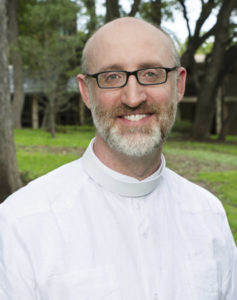We long for transcendence. We seem to be built to encounter realities that transcend us. Every time we have a moment of awe, we know this, intuitively. And once the encounter passes, that longing to encounter the transcendent lingers and never really leaves us. Each encounter just deepens the longing.
But how can we make sense of this? How can transcendence be rendered intelligible? What does an encounter with transcendence look like? And how could we describe it? How can we talk about transcendence?
Now, we don’t just desire observation of things that transcend us. We desire fellowship with that which transcends us. We desire communion. Communion is our heart’s desire.
Communion is genuine encounter with another person. Persons long for communion with one another.
There is a mutuality here. Persons are those kinds of things that open out to other persons for fellowship. And it is also that very fellowship that makes it possible to be a person.
We could add adjectives like “every genuine encounter with a real person,” but encounter entails authenticity. Without authenticity, we do not encounter, truly, in the first place. And there is no such thing as a “real” person or “real” personhood. Authenticity is the condition of being “person” in the first place. These things are almost definitional in nature, and they define one another. The achievement of genuine fellowship grants us authentic personhood.
It is kind of like a magnet and a magnetic field. Without the two poles of a magnet, there can be no magnetic field. It is the two poles of the magnet that generate the magnetic field. But it is the fact that this object generates a magnetic field that renders it a magnet.
So too, then, with persons in communion with one another. It is persons that are able to “generate” the “field” we call fellowship or communion. But it is the generation of the field of communion that makes us persons in the first place.
Now, every encounter with another person is an encounter with transcendence. We can never so exhaust our encounter with another person that we “know” them, perfectly. Personhood exceeds reduction to theories or definitions. Even spouses, for example, never fully know the other, in the sense the they can explain their spouse, or never be surprised by one another. That is what makes them persons. And that is what makes them continue to long for ever deepening fellowship with each other. Persons transcend one another.
The fact that every encounter we have with another person is an encounter with transcendence gives us clues as to how to talk about transcendence in general. (In fact, as Christians, we may find that it even gives us a clue as to how to talk about ultimate transcendence. It has been revealed to Christians that God is person. But that should be another blog post.)
These observations beg many questions:
If persons seek fellowship, and fellowship makes personhood possible, how do we ever step into this circle?
How do we get in?
How do we respond to our encounter with another person?
How do we know we are responding well, authentically?
How do we know we really understand the other person, the other person’s behavior and discourse, so that we can respond well?
I look forward to your answers to these questions. Next, I will write about some of the ways I try to answer those questions. Blessings!


